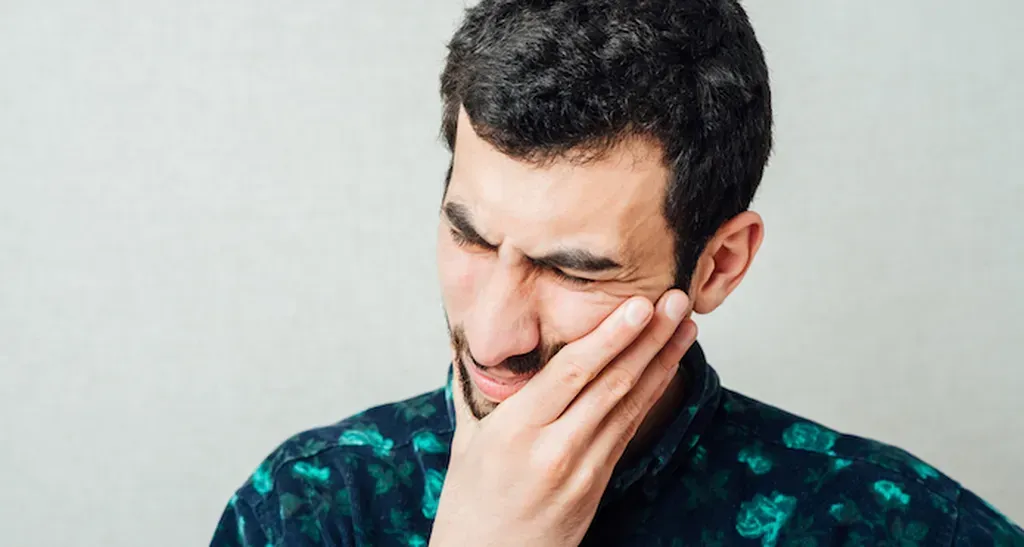Your jawbone is attached to your head by two joints, one on each side. These hinged temporomandibular joints (TMJs) allow you to open and close your mouth to eat and speak. TMJ can also refer to joint dysfunction, which comes with pain, stiffness, and a clicking or popping sound when you move your jaw.
At Fluegge Family Dentistry, Dr. Matthew Fluegge and our team treat TMJ dysfunction at our East Wenatchee, Washington, office. If your jaw “pops” when you chew, here’s what’s going on and what you can do about it.
TMJ causes
Many different things can cause TMJ issues. However, unless you’ve suffered a direct jaw injury, such as from a fall or blow, it may be difficult to diagnose. The truth is that TMJ issues usually develop from a combination of factors, including genetics, arthritis (wear-and-tear of the joints), poor posture, and repetitive motions, such as chewing gum.
The most common direct cause, though, is bruxism, when you clench and grind your teeth, either while awake or asleep. Bruxism affects up to one-third of adults during the day (often caused by stress) and more than one in 10 while they sleep. The grinding stresses the TMJs and wears down the teeth, leading to a painful, misaligned bite and other problems.
Common signs of TMJ issues
The most common symptoms of TMJ dysfunction include:
- Pain and tenderness in one or both TMJs
- A popping/grating sound when moving your jaw
- Limited range of motion (can’t open widely)
- Jaw joint locks open or closed
- Pain in the temples/headaches/migraine attacks
- Difficulty speaking and chewing
- Uneven tooth wear, affecting the bite
You don’t have to experience all — or any — of these symptoms to have problems with your TMJs. However, if you have TMJ problems but don’t experience symptoms, you may not need treatment.
Diagnosing and treating TMJ issues
By examining your teeth, Dr. Fluegge can confirm whether bruxism is behind your jaw popping.
If your teeth — especially your molars — show signs of uneven wear, chips, or cracks, bruxism is likely the cause. Sometimes, he may need to restore the damaged teeth before addressing your other TMJ symptoms.
Dr. Fluegge can do various things to restore the proper function of your joints, but what he decides depends on the nature and severity of your problem. Usually, the best regimen pairs in-office care with at-home care.
In-office treatment
If you have mild pain, stiffness, or muscle spasms, over-the-counter pain relievers and anti-inflammatories may do the trick. If they’re not strong enough, we may prescribe a more potent painkiller or a muscle relaxant. Another possibility is a steroid injection into the joint space to reduce inflammation and pain.
Oral appliances are often used when bruxism is involved. Dr. Fluegge can custom-make an occlusal splint (nightguard) that fits over the top or bottom teeth. These devices act as barriers between the upper and lower arches so the teeth can’t touch, allowing the muscles to relax and the pain to diminish.
He might also recommend an anterior positioning appliance. The appliance moves your lower jaw slightly forward, relieving muscle pressure around the joints. You can wear it while you sleep or during the day. Another option is an orthotic stabilization appliance, which moves your jaw into the proper position and holds it there.
At-home care
The following self-care tips can help boost the effectiveness of in-office treatments:
- Try to hold your teeth apart when not eating
- Eat soft foods
- Apply ice and heat to the joints
- Perform jaw stretches
- Practice good posture
Surgery is rarely an option for TMJ issues unless the jaw is locked shut, is dislocated, or has degenerated severely.
Is your jaw making a popping noise when you chew? Do you have pain where the muscles attach to the bone? Fluegge Family Dentistry can help. Call our office at 509-888-3384 to schedule a consultation, or book online today.

